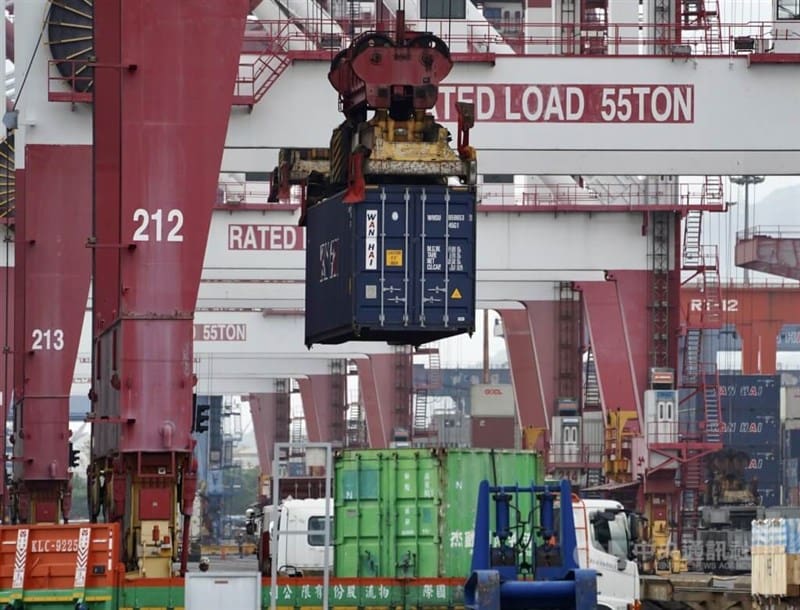Business
How Do Trade Agreements Shape the Future of Local Employment and Industry Growth?


In today’s globalized economy, trade agreements have become pivotal in shaping the future of local employment and industry growth. The interconnectedness of economies means that the terms and conditions of trade agreements can significantly impact the competitiveness of local industries and the availability of jobs.
From import competition to export opportunities, regulatory alignment to innovation stimulation, the effects of trade agreements are far-reaching. Understanding how these agreements influence the dynamics of employment and industry growth is crucial for businesses, policymakers, and individuals alike.
As we navigate the complexities of trade agreements, it becomes evident that their impact extends well beyond the realm of international commerce, shaping the very fabric of local economies and industries.
Key Takeaways
- Import competition can lead to job displacement and reduced wages in affected industries, particularly in regions more exposed to import competition.
- Export opportunities can drive the growth of local industries by increasing demand for domestic goods and services in international markets, leading to the creation of new employment opportunities.
- Economic diversification fostered by trade agreements promotes resilience and long-term stability in domestic economies, reducing vulnerability to fluctuations in global demand and prices.
- Regulatory alignment and industry adaptation within trade agreements facilitate smoother trade, increase exports, attract foreign direct investment, and contribute to economic growth.
Import Competition and Local Employment
Import competition has been shown to have a significant impact on local employment patterns, often leading to shifts in job availability and wage levels. When a domestic market is opened to international trade, local industries face increased competition from imported goods. This can result in job displacement and reduced wages for workers in the affected industries. Research by Autor, Dorn, and Hanson (2013) found that exposure to import competition from China led to a significant decline in manufacturing employment in the United States, particularly in regions that were more exposed to import competition. Furthermore, their study highlighted that the adverse effects on employment were long-lasting, with workers experiencing persistent earnings losses.
Import competition can also drive a shift in the types of jobs available, with a potential polarization of the labor market into high-skill, high-wage jobs and low-skill, low-wage jobs. Therefore, it is crucial for policymakers to consider the potential impacts of import competition on local employment when negotiating trade agreements and to implement measures to support affected workers in transitioning to new opportunities.


Export Opportunities and Industry Growth
The impact of international trade on local employment extends beyond import competition, as export opportunities can play a significant role in shaping industry growth and job creation within a domestic economy. Export opportunities can lead to increased demand for domestic goods and services in international markets, consequently driving the growth of local industries. This growth can result in the creation of new employment opportunities, as companies expand their production capacity to meet export demand. Additionally, exposure to international markets through exports can stimulate innovation and efficiency within domestic industries, further contributing to industry growth and competitiveness.
Data from various studies supports the positive correlation between export opportunities and industry growth. For instance, a report by the World Bank indicates that countries that are more open to trade tend to experience higher GDP growth rates, with a significant portion of this growth attributed to increased export opportunities. Furthermore, a study published in the Journal of International Economics found that export expansion has a substantial impact on employment growth in various industries, emphasizing the role of export opportunities in driving local job creation.
Economic Diversification and Trade Agreements
Economic diversification is a crucial aspect of trade agreements, as it fosters resilience and long-term stability in domestic economies. When countries rely heavily on a single industry or export, they become vulnerable to fluctuations in global demand and prices, potentially leading to economic instability. Trade agreements that promote economic diversification can help mitigate these risks by encouraging the development of new industries and markets.
By facilitating access to a wider range of goods and services, trade agreements can stimulate innovation and entrepreneurship, leading to the creation of new job opportunities and a more dynamic economy.
Data from various trade agreements supports the positive correlation between economic diversification and long-term growth. For example, countries that have diversified their export base through trade agreements have experienced more stable economic performance and reduced vulnerability to external shocks.


Moreover, economic diversification can also lead to the development of higher value-added industries, which in turn can contribute to sustained economic growth and improved living standards.
Regulatory Alignment and Industry Adaptation
Regulatory alignment and industry adaptation are pivotal factors in the successful implementation of trade agreements. They influence the ability of domestic industries to remain competitive and compliant within the global market.
Regulatory alignment involves ensuring that domestic regulations and standards are in harmony with those of trading partners. This facilitates smoother trade and reduces barriers. It also entails streamlining administrative procedures, customs regulations, and intellectual property rights protection.
Industry adaptation, on the other hand, demands that local industries adjust their operations, products, and services to meet the evolving demands and standards of international markets. This may involve upgrading technology, enhancing skills, and investing in innovation to maintain competitiveness.
Data shows that countries with trade agreements that prioritize regulatory alignment and industry adaptation tend to experience increased exports, higher foreign direct investment, and greater economic growth. A study by the World Bank revealed that regulatory cooperation and mutual recognition of standards within trade agreements can lead to a 3.4% increase in bilateral trade.


Moreover, industries that adapt to international standards have been found to achieve higher productivity and innovation, leading to sustainable growth and job creation. Therefore, focusing on regulatory alignment and industry adaptation within trade agreements is essential for fostering economic freedom and competitiveness.
Innovation Stimulation and Consumer Choice
An empirical analysis of trade agreements reveals that fostering innovation stimulation and expanding consumer choice is intricately linked to the long-term economic impact of such agreements.
Trade agreements that prioritize innovation stimulation through measures such as intellectual property rights protection, technology transfer, and research collaboration have the potential to drive economic growth. By encouraging technological advancements and the development of new products and services, these agreements can enhance the competitiveness of domestic industries on a global scale.
Moreover, expanding consumer choice through trade agreements can lead to several benefits. It can provide consumers with access to a wider variety of goods and services, often at more competitive prices. This heightened competition can incentivize domestic producers to innovate and improve the quality of their offerings, ultimately benefiting consumers.
Additionally, increased consumer choice can drive economic growth by creating opportunities for small and medium-sized enterprises to access new markets and expand their customer base.


Frequently Asked Questions
What Are the Potential Long-Term Effects of Trade Agreements on the Skill Level and Wages of Local Workers?
The potential long-term effects of trade agreements on the skill level and wages of local workers depend on various factors, including industry dynamics, technological advancements, and government policies, ultimately shaping the future labor market.
How Do Trade Agreements Impact the Development and Growth of Small and Medium-Sized Industries in the Local Economy?
Trade agreements have a significant impact on the development and growth of small and medium-sized industries in the local economy. They can open up new markets, increase competition, and drive innovation, but can also pose challenges for domestic industries.
What Are the Potential Challenges and Opportunities for Local Industries to Diversify Their Products and Services in Response to Trade Agreements?
Potential challenges for local industries to diversify in response to trade agreements include increased competition and the need for adapting to different regulatory standards. Opportunities include access to new markets and potential for specialization in niche products and services.
How Do Trade Agreements Influence the Regulatory Environment for Local Industries, and What Are the Implications for Industry Adaptation?
Trade agreements dictate regulatory frameworks, impacting local industries. This influences industry adaptation, with implications for competitiveness and market access. Analyzing data on regulatory changes can provide insights into how trade agreements shape the local business environment.
In What Ways Do Trade Agreements Stimulate Innovation in Local Industries and How Does This Impact Consumer Choice?
Trade agreements stimulate innovation in local industries by promoting competition, access to new technologies, and best practices. This enhances product diversity and quality, providing consumers with a wider range of choices and driving industry growth.




Hi, I’m Kyle Rivera, a news journalist and blog editor with the Daily Evening News. A TCU alum with a flair for storytelling, I spend my days uncovering impactful stories and my evenings exploring the realms of yoga, cycling, and whimsically bad poetry.
Travel is my escape; I’ve trekked from Tokyo’s neon lights to Iceland’s tranquil vistas. But no journey is complete without Mogli, my Golden Retriever, who’s redefining his breed standards in the most charming ways.
I love connecting with fellow travelers, yogis, cyclists, and anyone who enjoys a laugh at my poetic attempts. If you’re into stories that inspire, travel escapades, or just want to see what Mogli and I are up to, I’d love to hear from you on Instagram or Facebook. Let’s share tales and tips from around the globe!

